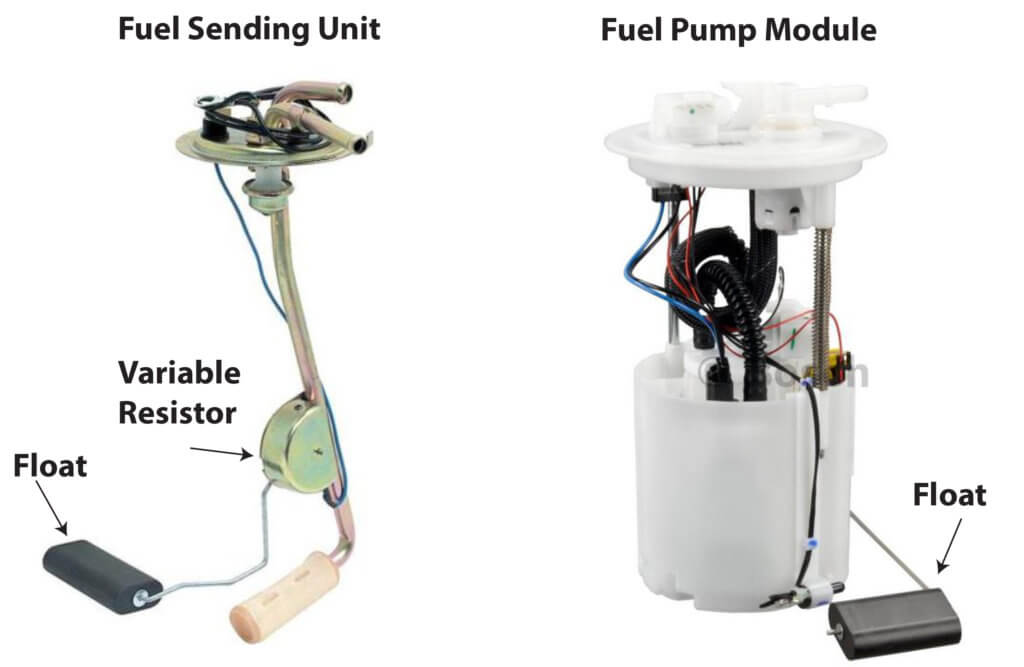Fuel gauge isn’t working or reading wrong amount
How to diagnose a non-working fuel gauge or a gauge that’s wrong
If your fuel gauge isn’t working or is reading the wrong amount, the two most common causes are a bad fuel-sending unit or a wiring harness issue. Here’s how to diagnose and fix the issue.
How the fuel gauge works

The fuel-sending unit consists of a variable resistor, a float, and a float arm. The fuel-sending unit is built into the fuel pump module. The float rides on top of the fuel. As the fuel level drops, the float arm moves down and that moves the variable resistor changing the voltage.
In older non-computerized vehicles, the sending unit is wired directly to the fuel gauge. So any change in the resistance is directly reflected by the fuel gauge.
However, in late-model computerized vehicles, the fuel level signal sensor’s varying voltage goes to the body control module (BCM) which then sends a digital signal to the dash cluster, changing the fuel level on the dash.
Learn how to diagnose the problem
If nobody has been working on the fuel tank and one day you discover the fuel gauge isn’t working, the most common cause is corrosion in the fuel-sending unit connector or corrosion at the ground location.
Check the fuel-sending unit connector
Start by locating the fuel-sending unit connector. Disconnect it and check for corrosion. If you find corrosion, clean it with an electrical contact cleaner and install a small amount of dielectric grease to prevent further corrosion. If there’s no corrosion, locate the ground connection and clean that. If fuel gauge still isn’t working, test the voltage reading coming from the sending unit
Test the sending unit
Using a shop manual, measure the reference voltage into the fuel level sending unit. Then measure the return voltage back to the gauge or BCM.
Compare the return voltage to the expected voltage based on the amount of fuel in the tank. If the return voltage is off, chances are the variable resistor is corroded or the float level arm is bent.
If you’re not seeing the reference voltage, check for a wire harness issue.
Replace a bad fuel-sending unit
Replacing a fuel-sending unit is a pretty big job. In some vehicles, you can access the fuel-sending unit and fuel pump module by removing an access panel under the rear seat. But in other vehicles, you have to drain the fuel tank and then remove it from the vehicle.
The fuel pump module is held in place by a locking ring and some require a special tool to remove the ring. I recommend replacing the entire fuel pump module as opposed to replacing just the fuel-sending unit.
© 2012 Rick Muscoplat
Posted on by Rick Muscoplat